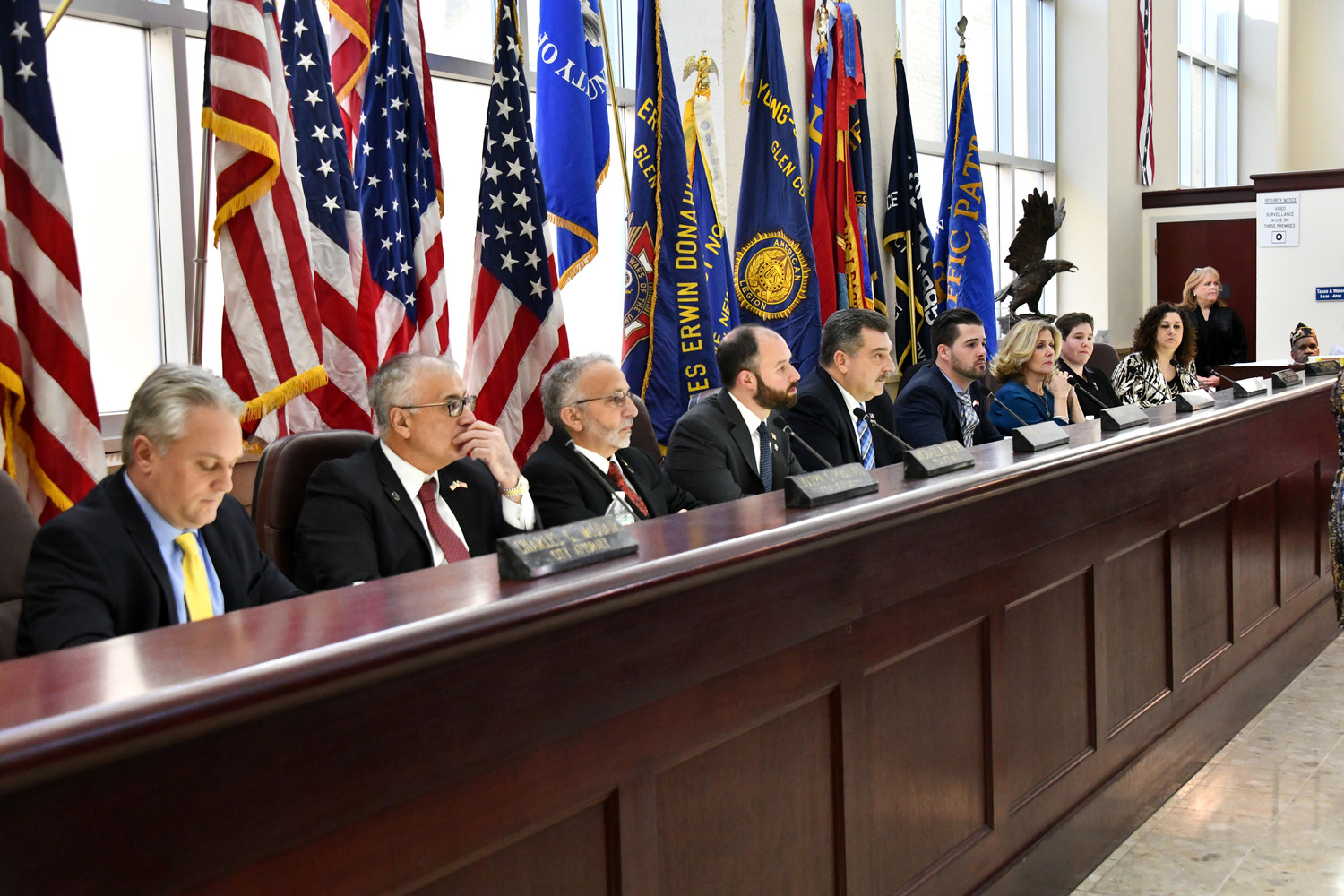City council’s spat over contracts
Silverman, McQuair throw jabs over billing outside vendors
At a City Council meeting on April 24, Councilwoman Marsha Silverman raised an issue about warrants — normally a unanimous, uncontroversial vote to pay the city’s bills — that led to nearly a half-hour of contentious debate over how the city handles professional-service contracts, under which firms are on call should the city need their services.
Silverman took issue with several points, including the fact that there’s no clear way to track the projects the city pays for under the on-call contracts.
“My understanding is that those contracts put the parameters in place — the agreement and expenses,” Silverman said at the meeting, “but not for any specific projects.” She added that without the opportunity to vote on the individual projects, the council could not fulfill its “fiduciary responsibility” to ensure that taxpayer money is well spent.
City Attorney Charles McQuair countered that there isn’t always time to put projects to a vote before invoking a professional services contract. Requiring a vote on every project would make it impossible to address some of the time-sensitive, unforeseeable is-sues the city sometimes faces, he said.
The legal invoices are “approved and vetted by me to make sure that they’re accurate,” McQuair said.
Silverman fired back that without oversight from the council, or a policy for managing on-call contracts, “You could engage firms that are on the annual contract list and the on-call list for hundreds of thousands of dollars, or millions of dollars, without board approval. That’s what you’re saying.”
Darcy Belyea, director of the Parks and Recreation Department, took issue with Silverman’s claim. “Speaking as a department head,” she said, “we do have a procurement policy, and we do act under a budget.” We have constraints that we have to follow.”
Silverman noted that she wasn’t accusing anyone of wrongdoing or of failing to scrutinize the city’s invoices, and added that she was referring specifically to the lack of a policy governing professional-service contracts.
Professional services — like lawyers, architects and engineers — are not subject to the same bidding process that most goods and services contracts go through to ensure that the city is getting the best deal.
Martha Krisel, now the deputy Nassau County attorney, wrote in a 2015 Nassau Bar Association newsletter that these roles require “skills, training, professional judgment and creativity.” Because municipalities have to account for those intangible qualities, they do not need to adhere to the “lowest responsible bidder” threshold when hiring.
But Krisel said she does believe that professional services must be procured in accordance with “specific policies and through documented decision making,” citing a statewide municipal law that requires local governments to adopt such policies. Glen Cove’s procurement policy does not appear to address professional-services contracts.
Mayor Tim Tenke — who at one point had to coax McQuair and Silverman back to civility after they repeatedly tried to talk over each other — said that he supported establishing a procurement policy so that the council can be made aware of the specific projects covered by a contract. “I’d like to make sure that we do have safeguards in place when we have contractual obligations,” Tenke said, “because these numbers can get quite large.”
Such safeguards could be just around the corner, he added. “We are in the process of putting together a finance committee, which is going to be looking specifically at the topic of procurement,” Tenke said. “That’s hopefully something we’re going to have up and running very shortly.”
Returning to the subject of warrants, Silverman said it was hard to scrutinize them properly, because council members receive them on the Friday before each council meeting, held on Tuesday. Because of that, she said, “We do not have a pre-council meeting to discuss warrants before voting on them.”
The warrants, which are available on the city’s website, provide a less-than-complete description of each expense. “Having been involved in municipalities myself,” said Drew Lawrence, a Glen Cove resident, “I know that the warrants can be lacking in any sort of specific information.” He recommended adding more detail to allow the council, and the public, to keep better track of the city’s taxpayer-funded activities.
Other members of the public spoke in favor of greater transparency for on-call contracts. Steve Gonzales, a former councilman, could hardly contain his anger over a comment by McQuair, inviting council members to approach him with any questions they had about the warrants. “Why do they need to go up to you and ask you?” Gonzalez asked. “Shouldn’t you be providing that information to them?”
Nancy Hawkins voiced what might have been on many people’s minds. “I think every single one of you should be looking at the bottom line, all the time, for us,” she said. “That’s why we elected you.”

 47.0°,
Fair
47.0°,
Fair 





